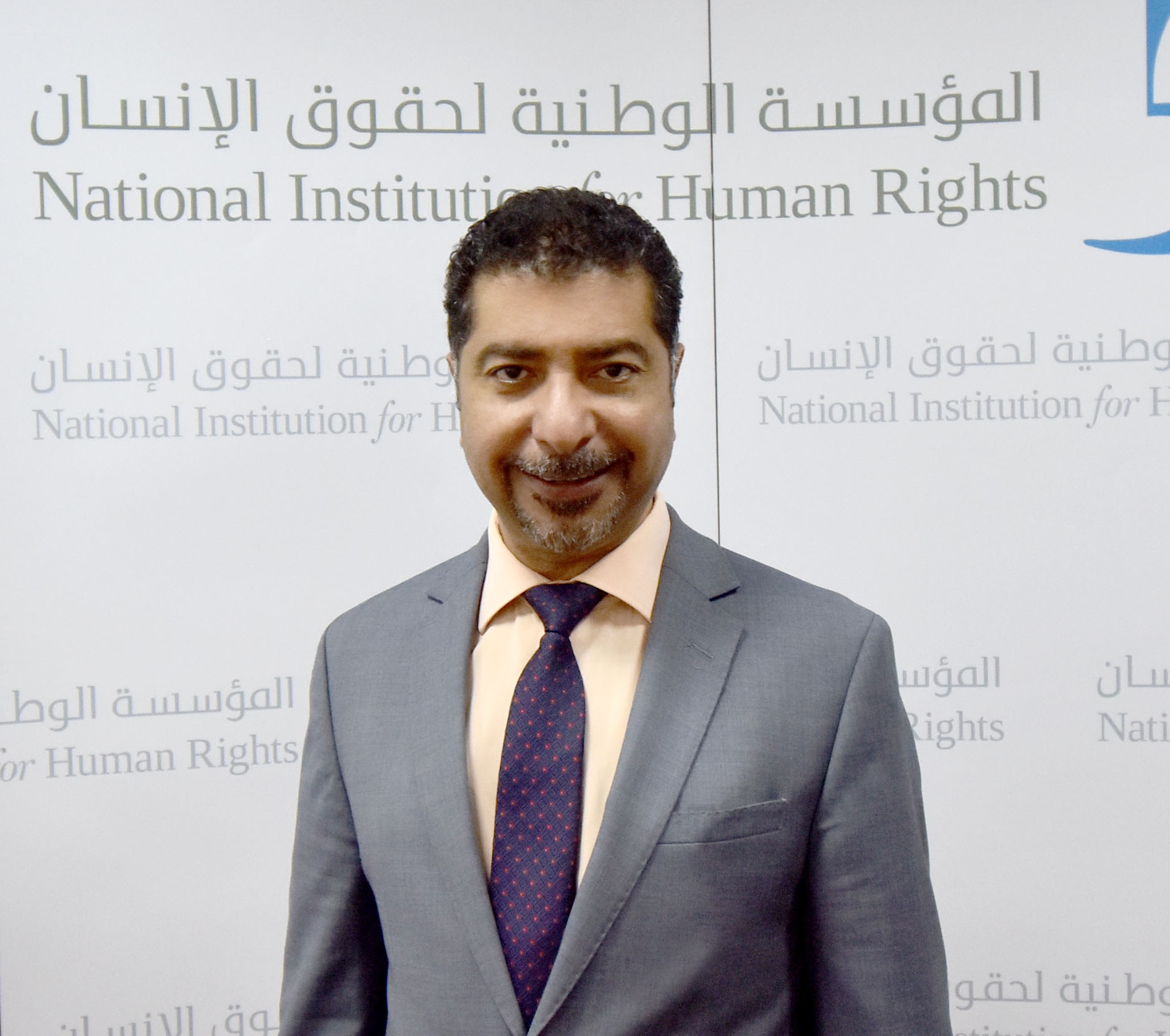NIHR Issues Parliamentary and Municipal Elections Monitoring Report 2022

In implementation of the role assigned to the National Institution for Human Rights (NIHR) in the field of monitoring and protecting all rights, and the importance of ensuring that everyone enjoys them, the NIHR issued its report on monitoring the parliamentary and municipal electoral process for the year 2022 in the Kingdom of Bahrain, in the period prior to the start of voting, by calling for it, registering in the electoral lists, receiving nomination applications and objecting to them, monitoring the electoral process on polling day and finally monitoring them in the subsequent period through the final announcement of winners and appealing against the results.
On this occasion, Eng. Ali Ahmed Al-Derazi, Chairman of the NIHR, stated that the report issued on monitoring the electoral process for the year 2022 is based upon the NIHR's firm belief that the participation in managing public affairs is a feature of a democratic society and one of the ways to enhance the values of good citizenship in it, since the participation in the electoral process by nomination and election to the House of Representatives and municipal councils membership is one of the most prominent pillars of the Reform Project of His Majesty the King, which aims at creating an advanced democratic system based on the integration and participation of individuals in political decision-making and the people's exercise of their role in pushing decision-makers to take policies that serve the public interest.
Al-Derazi stated that the NIHR's report was built on clear and specific legal and practical foundations that reflect the stages of monitoring and controlling the entire parliamentary and municipal electoral process, from the legislative (legal) and executive (practical) aspects, which start from the moment of calling for elections and candidacy, passing through the procedures for registering in voter lists and objecting to them, all the way to receiving nomination applications, objecting to them and the judicial appeals submitted therein, and ending up with electoral propaganda and electoral silence.
Regarding monitoring the electoral process on polling day, Al-Derazi stated that the NIHR prepared a special form for monitoring and control, which included a number of (88) indicators - referred to in the body of the report - that reflect the course of this process from its very beginning, which precedes the opening of the ballot for voters to cast their votes, all the way to the stage of starting the process of voting until its end, without neglecting the stage of sorting, counting, and announcing the final results, until reaching the stage of receiving and adjudicating electoral appeals, which falls within the jurisdiction of the Court of Cassation as the highest judicial body, in a way that guarantees the credibility, transparency and integrity of its proceedings.
Al-Derazi pointed out that the NIHR's report on monitoring the electoral process for the year 2022 concluded with a number of observations and recommendations that aim to ensure the full enjoyment of the right to nominate and elect, which are in fact a continuation and follow-up by the NIHR of the previous recommendations contained in its report for the year 2018, as the NIHR hopes that all of these recommendations are tools that support moving forward in developing the electoral process, in a way that reflects the lofty royal vision that always aims to uphold human rights values in all fields.
In order to review the report, please visit the Reports Section on the NIHR website www.nihr.org.bh.


